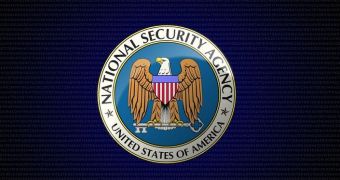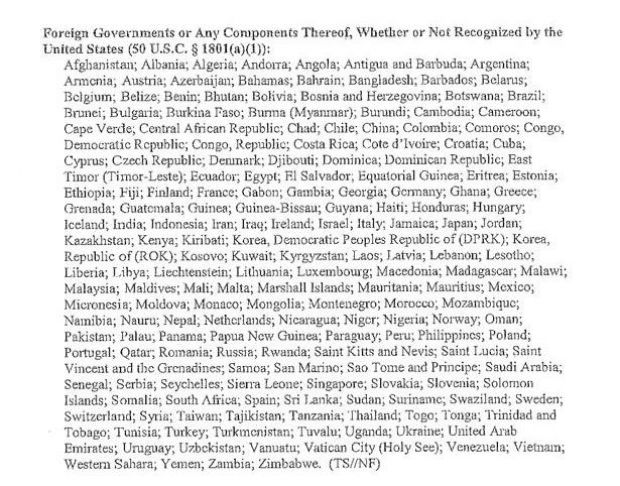The NSA was given permission to spy on all but four countries in the world, which are, of course, the members of the Five Eyes, a group of states that the intelligence agency collaborates on a frequent basis, exchanging information.
The Washington Post reports that the no-spying agreements between the United States, the United Kingdom, Canada, Australia and New Zealand are practically the only things that kept the US away from them.
The publication quotes a classified legal certification from 2010, as well as other documents which indicate that the NSA was given permission to intercept communications of its overseas targets, but also any communications about these targets through companies in the United States.
The operation was approved by the rubber-stamp Foreign Intelligence Surveillance Court, as revealed by Snowden’s leaked files, and it comprises 193 countries, including plenty of its allies. The list features, for instance, allies in Europe that the United States currently uses to handle the Ukrainian situation with Russia – Romania, Moldova, Poland, Hungary and more.
Germany, France, Italy, Spain and the northern countries in Europe, as well as pretty much the rest of the world are also on the list. Not even Vatican City and Liechtenstein, with their handful of citizens, were left out.
Not only did the FISC approve the NSA to spy on 193 countries whenever it felt like it, but the intelligence agency was also given permission to snoop in on the World Bank, the International Monetary Fund, the International Atomic Energy Agency and the European Union.These join an ever-growing list of organizations that the NSA has spied on, which includes the United Nations, Unicef and more.
Of course, the list above doesn’t mean that the NSA targets all these countries at all times, just that it was given the authority to do it should it need it. The implications of such blanket permissions are obvious and focus on user privacy for the most part.
Considering that the intelligence agency is not exactly known for targeting a single individual and collecting data about him or her, preferring bulk collection instead, since it is much cheaper and easier to conduct, everything is that much more serious.
The NSA is allowed to target foreigners that “possess, are expected to receive and/or are likely to communicate foreign intelligence information concerning these foreign powers,” as mentioned by an affidavit that supports the certificate above.
Basically, lawmakers, journalists, activists and more can be spied on by the NSA without a second thought.
“These documents show both the potential scope of the government’s surveillance activities and the exceedingly modest role the court plays in overseeing them,” said Jameel Jaffer, deputy legal director for the American Civil Liberties Union.
While the rest of us consider the privacy issues at stake, a former senior defense official who chose to stay anonymous, has told the Post that in case of a crisis in a certain country covered by the order, the military may be expected to go in and evacuate all Americans. Without the necessary data, this wouldn’t be possible.
The FISC approves three different certificates each year. One is for foreign governments, one relates to counterterrorism and one to counterproliferation. Alongside the National Intelligence Priorities Framework, they are the base layer for targeting a person or an entity.

 14 DAY TRIAL //
14 DAY TRIAL // 

